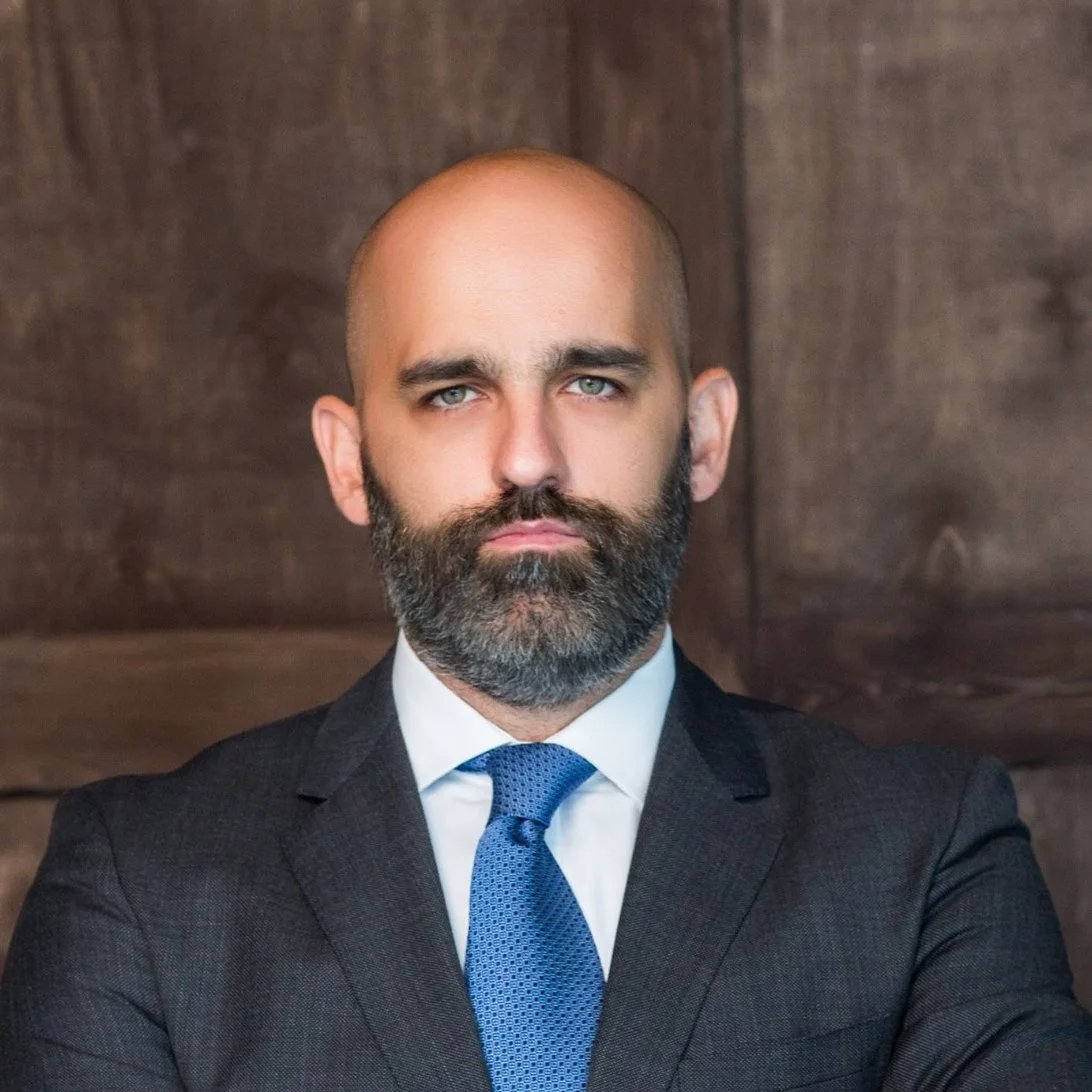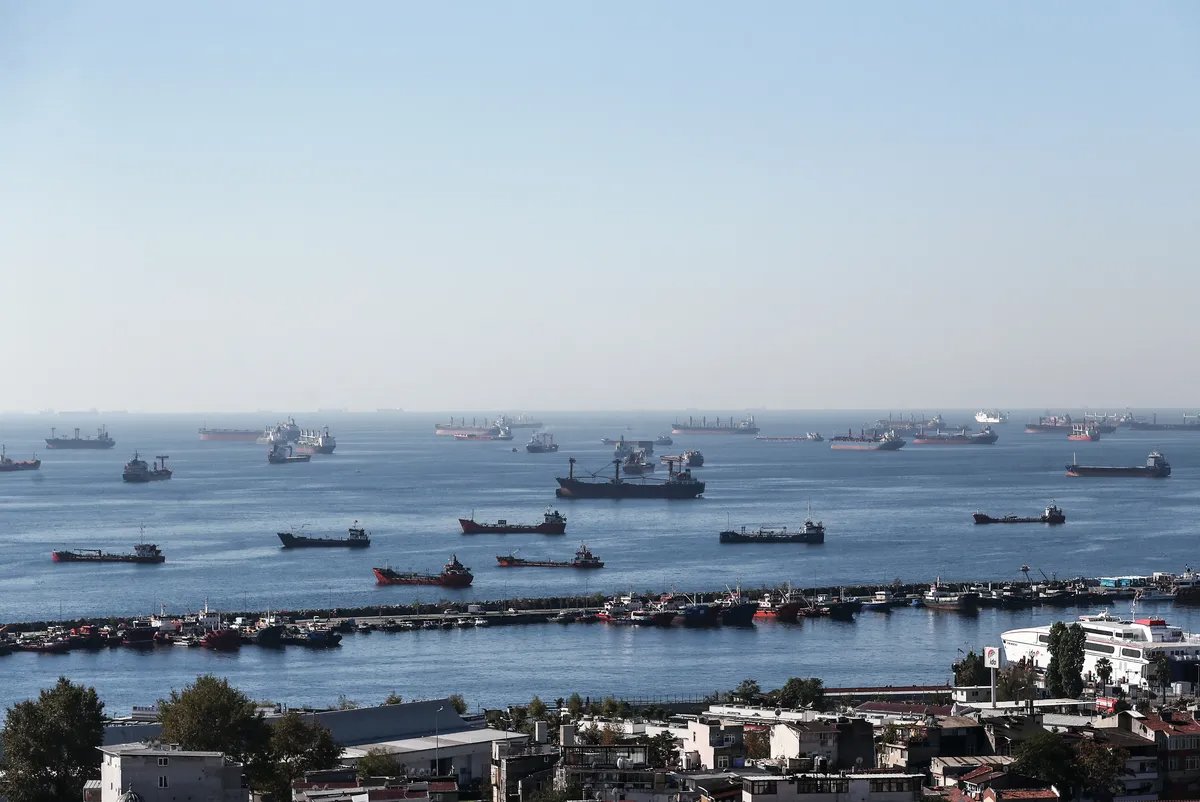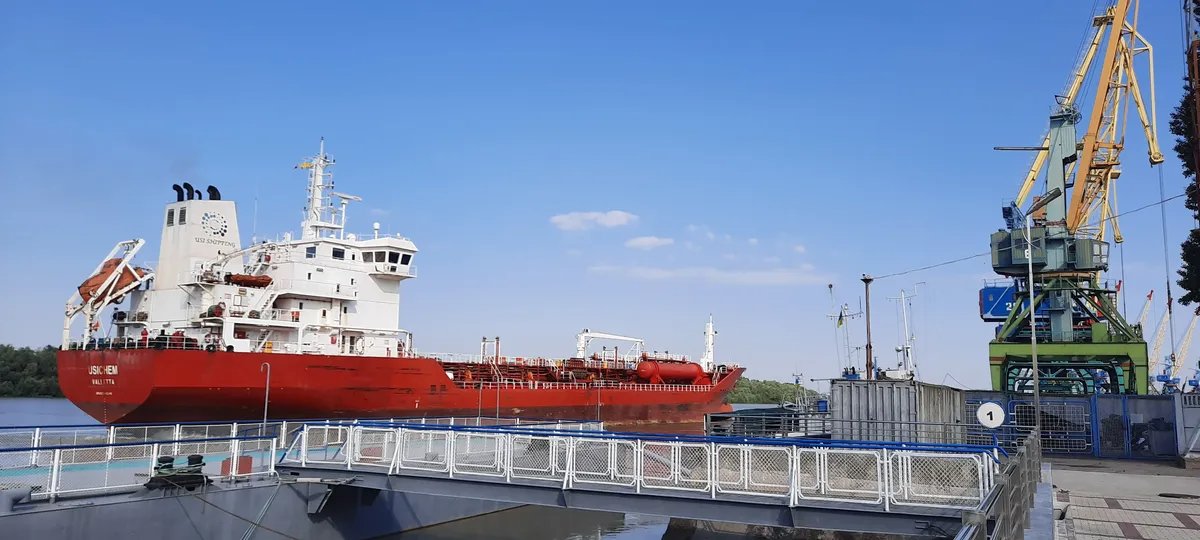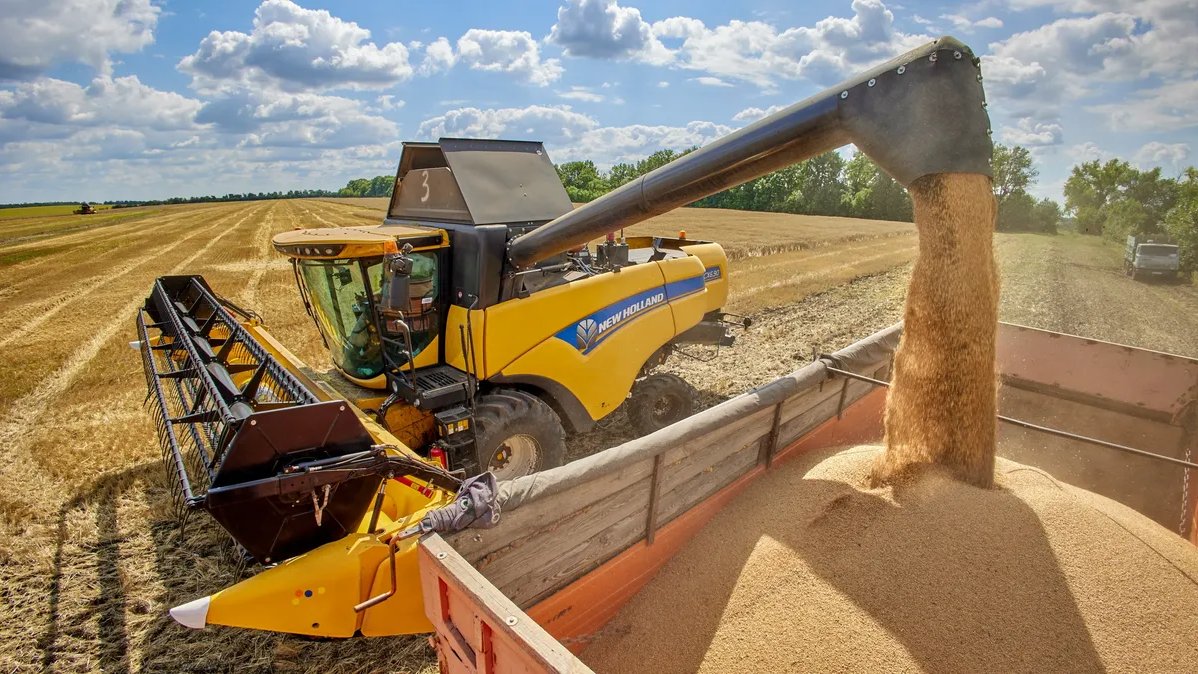On 17 May, Turkish President Recep Erdoğan announced a two-month extension of the Ukraine grain deal. The Russian Foreign Ministry confirmed the extension, but once again threatened to terminate the deal after 17 July unless the West made concessions. So far none of the Russian authorities’ demands has been met, and Turkey has become a key player in the export of Ukrainian grain, says Andrei Sizov, head of the SovEcon agricultural consultancy. Novaya-Europe talked to Sizov about the failure of Russian grain diplomacy and what it means for the country’s agricultural sector.

Andrey Sizov
PhD, Grain market expert, Head of the SovEcon agricultural consultancy
How do you assess the extension of the grain deal? In effect, none of Russia’s demands has been fulfilled.
We expected that there would be challenges. There was some intentional uncertainty, having to do with giving Erdoğan the opportunity to declare an extension closer to 28 May, i.e. by the second round of elections.
Russia has not and will not gain anything from this deal. There is no deal, by and large. The Russian authorities deliberately stuck several different documents together. What is called the “grain deal” is a paper signed last July, which states that Russia would not interfere with Ukraine’s grain exports or attack the infrastructure, but only inspect vessels going to or from the Black Sea. There has been no talk of connecting [Russia’s Rosselkhozbank] to SWIFT or anything else yet.
After numerous statements and threats, Russia looks quite weak, to put it mildly. On some days, it threatened the West up to four times.
And suddenly, without batting an eye, Turkey announces an extension of the deal. All of Russia’s demands have been ignored.
It is very odd to disgrace oneself like this, to put it bluntly.
Now, the authorities have added another 30 pages to [the agreement]. On 18 May, the Russian Foreign Ministry announced that it would expand its list of demands, adding the very nebulous “unfreezing of Russian companies’ assets”. This is all very strange. Market participants are simply laughing at the Russian authorities.
Did Russia sacrifice its interests to help Erdoğan with the election?
Yes, Erdoğan needed it, as well as many other gifts that Russia has proffered him lately — the nuclear power plant built with Russian funding, the gas hub story, the deferral of gas payments. Erdoğan got all of this over the past year. In turn, Turkey has become a serious payment and trade partner for Russia.
Therefore, taking into account Erdoğan’s second round of elections on 28 May, I believe that the main player here is not Russia or Ukraine, but Turkey.
So Turkey is a key player in the “grain deal”?
Let us assume Turkey’s influence is 70%, Russia’s influence is 20%, and I would give 10% to China.
Because China has a peace plan. Sure, it’s received a lot of criticism, and it’s vague. But it has this one particular clause that says China supports the extension of the deal. I think it would be difficult for Moscow to ignore “Comrade Xi’s” opinion.
The other point is that most of the deal’s requirements will likely be ignored. That is, we have the deal on paper, but it could work very poorly in practice.
Erdoğan has reported that everything is working and he has done a good job, but in fact things are not moving along.
This is due to the fact that the ships are being examined by Russian inspectors, among others. They are supposed to inspect ships that pass through the Bosporus. Since early April, there has been constant tension over which vessels should and should not be allowed and in what order. As a result, for example, since 6 May, the inspection commission of the Joint Coordination Centre in Istanbul has not allowed a single vessel through to the Odesa terminals. They let some ships out, but not a single one in because they failed to reach an agreement.
The next point is also very important — what will happen with the deal when and if Ukraine launches a large-scale counteroffensive. If there is more fighting and more missiles in the air, keeping up the grain corridor might become a challenge.

Cargo ships with Ukrainian grain awaiting inspection in the Marmara Sea. Istanbul, Turkey, 22 October 2022. Photo: EPA-EFE / ERDEM SAHIN
Last year, both Ukraine and Russia were facing a storage shortage: experts warned that there might not be enough room for the new harvest. What has changed now?
As for Ukraine, we can say (with many reservations) that the balance of supply and demand has returned to normal. Ukraine has shipped about 90% of its grain export potential in the current season. Things are going relatively smoothly. The extension of the deal is not as important for Ukraine now as it was a year ago, when there were huge stocks from the record harvest of 2021. In 2022, the war drastically reduced the yield. Plus, the weather wasn’t the best.
Yet Ukraine continued exporting during this time, thanks in part to the grain corridor. By now, it has exported almost everything it could. Despite certain issues, deliveries go through Europe.
Besides, the Danube ports, previously nearly abandoned, are working very actively. In effect, Ukraine can now export grain even without using the Odesa terminals.
Given this state of affairs, we expect a reduction of the cropped area in Ukraine. This is because of the war. There are no problems with exports and stocks, for the most part.
Russia’s case is quite different. While Ukraine had a record harvest in 2021, Russia had a record harvest in 2022. It was a huge crop that could largely not be exported, primarily because of the low shipment rates at the start of the current season having to do with the strengthening of the ruble. This is the first factor. The second factor is the export tariffs that Russia imposed on itself (authorities said this was done to curb price growth on the domestic market — editor’s note) and is not planning to abolish in 2024. The third factor concerns the technical issues of logistics and payments. Everything has become slower and more expensive. This, too, has had a negative impact on exports.
As a result, despite the high yield, Russian grain was not competitive. The export rate is now at a record high. But these few months of spring-summer 2022, of course, severely slowed down the overall exports at the end of the season. As a result, our export forecast is 44 million tonnes of wheat. If it were not for all these restrictions, we could have easily exported way over 50 million tonnes.

The tanker Usichem enters the Izmail Sea Commercial Port on the River Danube. Photo: Wikimedia Commons, CC BY-SA 4.0
How are Russian grain shipments now being paid for? And why is connecting Rosselkhozbank to SWIFT so important for Russia?
After the issues at the beginning of last year, the rate of shipment has reached a record level, and this grain is being paid for. Based on this observation, we can assume that the payments are going through, although there are difficulties — the money takes a long time to reach the correspondent banks. Compliance procedures take a very long time. Counterparties have to make sure that there are no sanctioned companies all along the line. So far this works, but the process has become much longer, more complicated and more expensive.
Why Rosselkhozbank? We presume that Russia wants to turn it into a secure bank for transactions with the outside world, as it has done with Gazprombank, which gets paid for energy supplies.
In 2023, the world’s largest grain traders started to withdraw from Russia. Who will get their assets and how will this affect the market?
By global standards, these companies are very large, and they are important players on the Russian market: the American company Cargill, the Canadian network Viterra, and the Dutch Louis Dreyfus account for about 15% of exports. But it is still not very clear what they mean exactly by withdrawal.
The business of these companies is built in such a way that there is a global trader who is most likely located in Europe and trades grain from different regions. These companies may be present in Ukraine, Russia, Poland and so on. The trader makes deals by consulting with the teams in those regions. Once the trader has made a deal, the team in that country has to buy up the grain and get it loaded on a ship in a particular port by a certain date.
The people who made up the Russian teams are likely to stay and do the same thing under a different name. The parent company is no longer trading within Russia — that is all they have announced. But what about everything else? The most interesting question is what will happen to the assets.
It is also important to note that these global companies will likely continue buying Russian wheat, but will now do it in the terminal. This is not a big issue for Russia compared to its other problems.
But it is not good either, because the presence of international companies means a more civilised market, new technologies, and a tighter integration of the Russian and global markets.
It is thanks to this integration that Russian crop production has been growing all these years. Now the competition between the exporters is evidently decreasing. Low competition amongst exporter-buyers makes the conditions for the farmer worse, other things being equal.
But I repeat: it is not something terrible, even compared to the tariffs. Right now, crop farmers are losing about a third of their income because of them.
What is your forecast for the next extension of the deal in two months’ time?
First, as we have already discussed, the new threats and demands still do not seem to be an important part of the story. So far it does not look like the West is going anywhere with SWIFT, Rosselkhozbank, and other Russian demands. Rather the opposite is true.
An important factor is what Putin and Erdoğan decide, and whether Erdoğan stays in power. If he stays, the chances are higher that the deal will be extended, whereas if Kılıçdaroğlu, who talks of a greater orientation towards the West, the EU and NATO, wins the election, there could be problems. Especially given the tension that has emerged more recently, such as allegations of Russian meddling in Turkey’s internal affairs.
However, this does not mean that the deal is off if Kılıçdaroğlu is elected. With or without Erdoğan, Turkey is still very important to Russia. If Kılıçdaroğlu comes to power and his administration decides to join the anti-Russian sanctions so that Turkey is no longer Russia’s payment and trade hub, then there is a very high chance that the deal will end.
Food prices soared after the war started, but then dropped significantly and are still dropping. Can we say that the world has avoided a food crisis?
A food crisis is a vague concept, and everyone has a different definition. It is true that there was a sharp rise in prices, especially of grain, for a few months. Then prices started dropping, and for many goods they are still going down. They have already declined very dramatically, in many cases significantly below pre-war rates. Lower prices worldwide, all other things being equal, mean better food availability and somewhat fewer problems for poorer countries with high levels of food insecurity.
Join us in rebuilding Novaya Gazeta Europe
The Russian government has banned independent media. We were forced to leave our country in order to keep doing our job, telling our readers about what is going on Russia, Ukraine and Europe.
We will continue fighting against warfare and dictatorship. We believe that freedom of speech is the most efficient antidote against tyranny. Support us financially to help us fight for peace and freedom.
By clicking the Support button, you agree to the processing of your personal data.
To cancel a regular donation, please write to [email protected]

